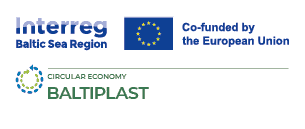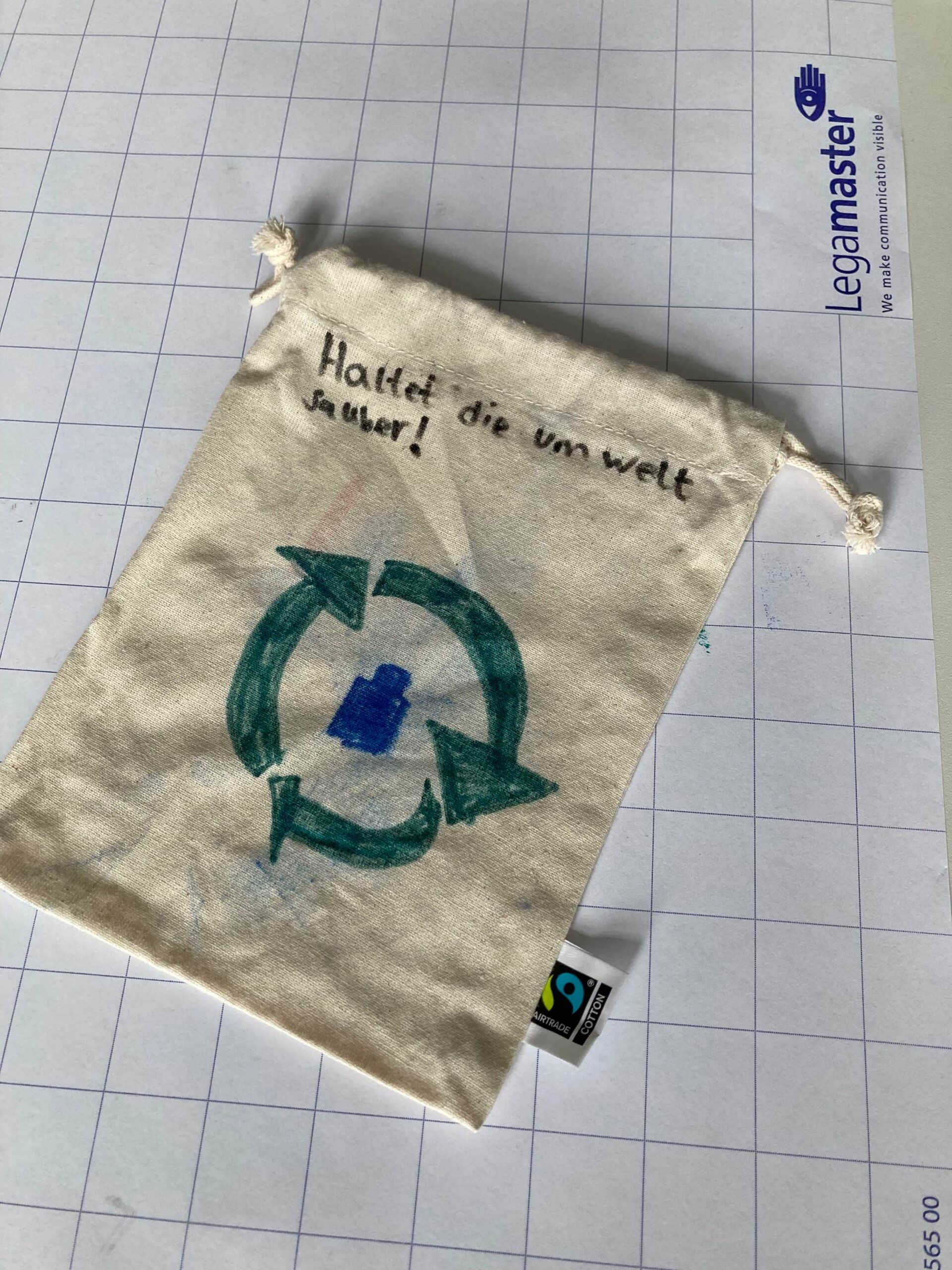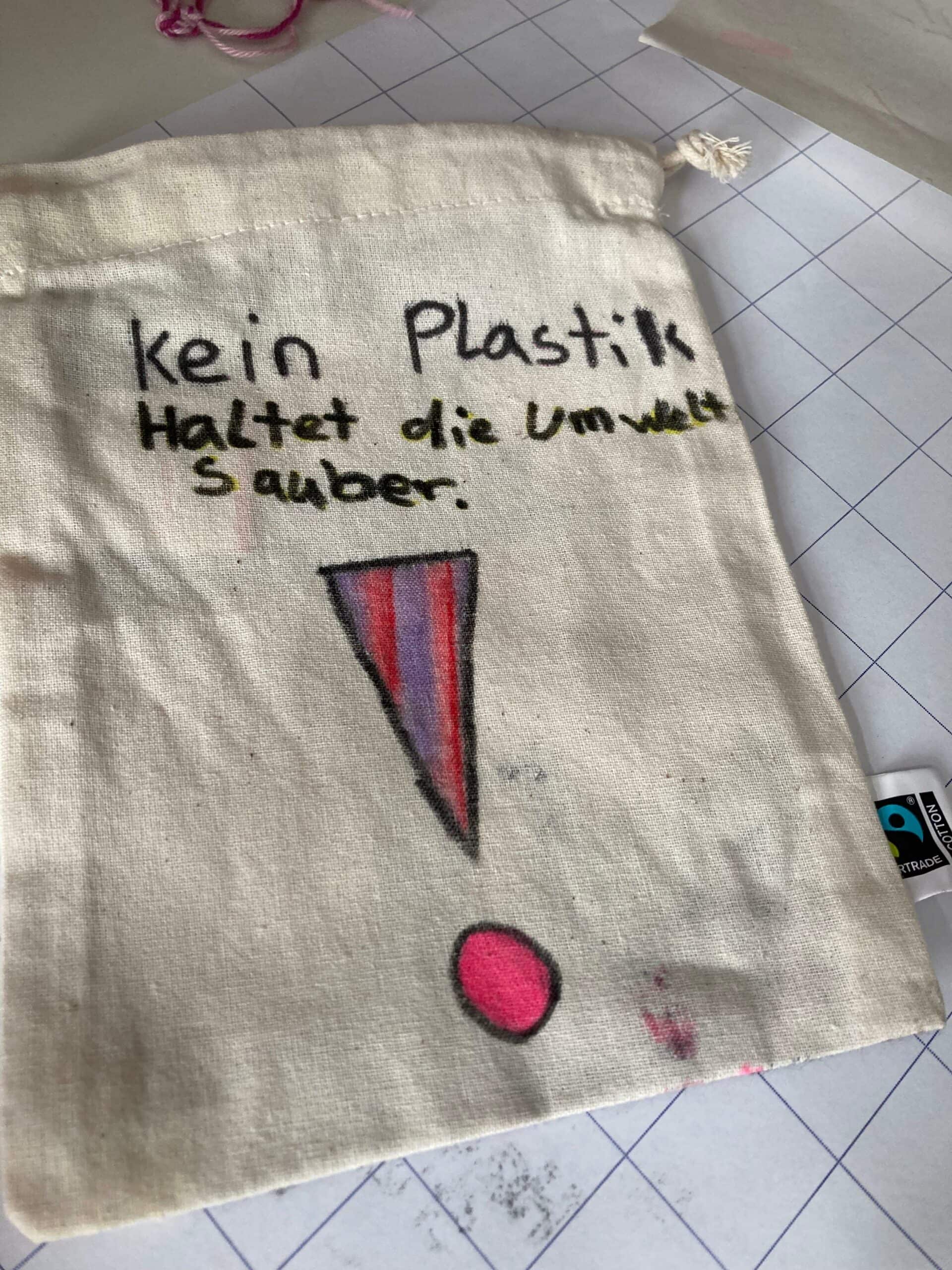
Engaging Primary School Pupils in Hamburg by Interactive Workshops on Plastic Waste
10 September 2024
On Friday, June 14th, we started with pupils from 3rd and 4th grade in the auditorium of the Hamburg University of Applied Sciences. On Monday, 17th of June, we carried out our workshops adapted for 1st and 2nd graders.
By raising awareness and asking the pupils specific questions, we first got an idea of their level of knowledge. After an interactive introduction to the topic and further discussion and question rounds, the pupils were allowed to get active themselves in a “do-it-yourself” (DIY) activity. They were allowed to make friendship bracelets and decorate their own vegetable bags with textile pens for the next plastic-free shopping trip. For the younger pupils, making friendship bracelets out of woollen threads instead of plastics was very well received and pupils helped each other to fulfil the DIY task.
Especially with the younger pupils, we worked more with images to demonstrate the effects of plastic pollution. The memorable pictures evoked many associations, and the 1st and 2nd graders felt deep emotions and were extremely compassionate about the animal pictures with plastics – like a turtle caught in a fishing net. Also, to diversify between traditional teaching and active phases, we played an interactive quiz with them.
In preparation for the workshops, the pupils began counting the plastic waste in their classrooms before the project week started. These plastic inventories also raised their awareness in advance and familiarized them with the topic.
Furthermore, we explained our ideas to teachers by introducing them at a teachers’ conference. And among the pupils’ parents by sending out a parents’ letter explaining the project BALTIPLAST and our plastic inventory tool for households.
Overall, we had a great experience with the pupils and teachers at Leuschnerstraße Primary School and hope that both pupils and teachers will continue to use plastics responsibly, both at school and at home.







